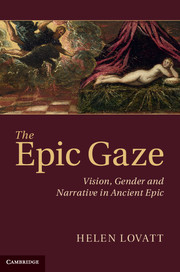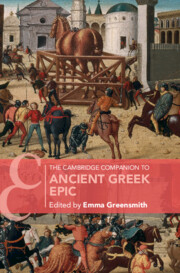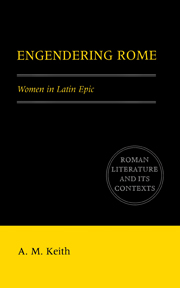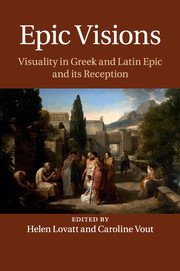The Epic Gaze
The epic genre has at its heart a fascination with the horror of viewing death. Epic heroes have active visual power, yet become objects, turned into monuments, watched by two main audiences: the gods above and the women on the sidelines. This stimulating, ambitious study investigates the theme of vision in Greek and Latin epic from Homer to Nonnus, bringing the edges of epic into dialogue with celebrated moments (the visual confrontation of Hector and Achilles, the failure of Turnus' gaze), revealing epic as massive assertion of authority and fractured representation. Helen Lovatt demonstrates the complexity of epic constructions of gender: from Apollonius' Medea toppling Talos with her eyes to Parthenopaeus as object of desire. She discusses mortals appropriating the divine gaze, prophets as both penetrative viewers and rape victims, explores the divine authority of epic ecphrasis, and exposes the way that heroic bodies are fragmented and fetishised.
- Provides an overview of the epic genre and insights into Greek and Roman ideas about vision, gender, mortality and heroism
- Uses theoretical approaches from film studies and gender studies to read ancient epic and insights from ancient epic to enrich theoretical perspectives
- Puts the central texts of ancient epic (Homer and Virgil) into dialogue with less well-known poems (Flavian epic, imperial Greek epic)
Reviews & endorsements
"The Epic Gaze is distinguished by the comprehensiveness of its discussion from Homer to Nonnus … strongly recommended for anyone interested in Greco-Roman epic, ancient narrative, or ancient theories of vision."
Neil W. Bernstein, Bryn Mawr Classical Review
"… a detailed, thoughtful examination of vision in classical epic … Recommended. Graduate students, researchers, faculty."
S. E. Goins, Choice
Product details
August 2013Hardback
9781107016118
424 pages
235 × 163 × 30 mm
0.75kg
Available
Table of Contents
- 1. Introduction
- 2. The divine gaze
- 3. The mortal gaze
- 4. The prophetic gaze
- 5. Ecphrasis and the Other
- 6. The female gaze
- 7. Heroic bodies on display
- 8. The assaultive gaze
- 9. Fixing it for good. Medusa and monumentality.









